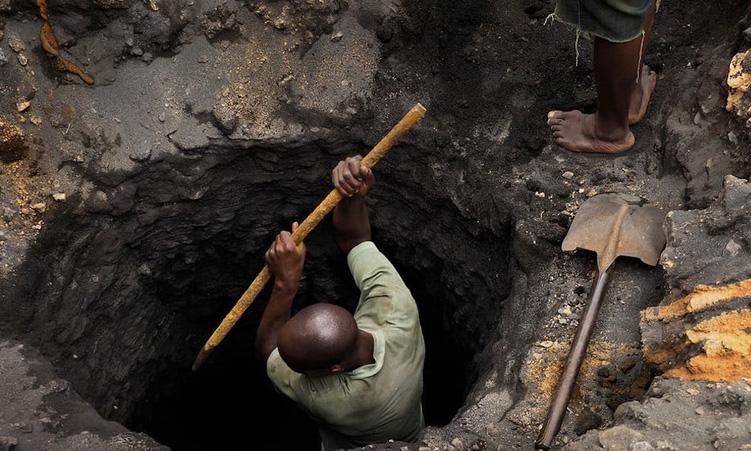PRETORIA – As expected, the ANC won overwhelmingly in parliamentary elections, but did not retain the two-thirds majority it won with ease in the last elections, according to the final tally announced on Saturday.
The victory puts party leader Jacob Zuma in line for the presidency, but without the seats in the 400-member parliament to enact major budgetary plans or legislationunchallenged. A split in the African National Congress and questions about Zuma’s fitness to govern after sex and corruption scandals were likely the main contributing factors. Zuma led the ANC to election victory with sweeping promisesto help the nation’s poor, but will enter office with little room to manoeuvre because of a faltering economy. The campaign promises coupled with his easy charisma have endeared Zuma to millions and delivered the ANC a 66 per cent majority – down from nearly 70 per cent in 2004 – in last week’s elections, giving him ample political capital with 264 of the 400 seats in parliament. Zuma told reporters he was not disappointed to fall just short of two-thirds. ‘We have won a decisive majority,’ he said. ‘The new president of the republic will be a president for all, and he will work to unite the country,’ Zuma said when declaring victory late on Saturday. He quickly went on to reiterate his promises to improve public services, including an expanded social safety net, better health care, improved schools, and a steppedup fight against a staggering crime rate.But his government will be poorly placed for any major new spending, with the International Monetary Fund predicting the economy will shrink by a 0,3 per cent this year due to falling commodity prices and lower foreign investment. Parliament is expected to vote Zuma into office on May 6. Zuma was treated like a president elect on Saturday, surrounded by photographers and well-wishers as he arrived to hear the final results announced, then appearing live on state television to deliver a 20-minute speech in which he promised his administration would speed up delivery of jobs, houses, school and clinics to the black majority that was denied so much under apartheid, and which has seen slow change since the ANC first took over in 1994. He also offered his hand to rival parties. ‘We may disagree on how to build a better life for all, but what unites us is the fact that this country belongs to all of us, black, white, coloured, Indian, together.’
The ANC, with 65,9 per cent of the nearly 18 million votes cast, was allotted 264 seats, three short of twothirds, and 33 fewer than it had held in the last parliament. The Democratic Alliance (DA) edged higher to 16 per cent of the vote and the upstart Congress of the People (Cope) took 7,5 per cent. The DA will have 67 seats, up from 47. The ANC breakaway party, known as Cope, got 30; it did not exist the last time South Africans voted. The Inkatha Freedom Party gets 18, downfrom 23. Nine other parties shared the remaining seats. The seats were allotted by election officials according to a formula after the final count was certified. THEN AND NOW The ANC won 69,69 per cent of the vote in the last elections in 2004,when it was led by Zuma’s rival Thabo Mbeki. It won 66,35 per cent in 1999. In the country’s first all-race vote in 1994, the ANC won 62,64 per cent of the vote.It could be seen as a message that voters want some limits on the party.
ANC rivals had argued Zuma should not have the two-thirds majority needed to legislate unchallenged or to change the constitution. In total more than 77 per cent of the country’s record 23 million registered voters cast ballots. Turnout in 2004 was about 76 per cent of more than 20 million registered voters. A strong ethnic vote from Zulus in Zuma’s rural homeland helped boost the ANC, which sees the populist Zuma as the first leader who can energise voters since the legendary Nelson Mandela. Supporters confident of an ANC victory have been celebrating since voting ended on Wednesday. Zuma faces a heavy responsibility – meeting expectations for change among South Africa’s impoverished black majority. Some say Zuma is too beholden to unions and leftists, and will not be able to fulfil his promises of creating jobs and a stronger social safety net. At the end of the campaign, Zuma was talking not about creating jobs, but staving off job losses. The ANC lost support in eight of the country’s nine provinces, with a drop of up to 10 points in some cases, but still won those provinces. However, it gained about 16 percentage points in KwaZulu-Natal at the expense of the traditional Zuluparty, the Inkatha Freedom Party. Voters in the Western Cape, which includes Cape Town, gave control of their province to the DA – the only regional victory by the opposition.
DA leader Helen Zille had said one of her main election goals was to stop the ANC’s two-thirds majority and to win the Western Cape, which is the heart of the country’s wine and tourism industries. Cope came in second in five of the provinces, a major achievement for a group that only had a few months toprepare. – Nampa-AP-AFP
Stay informed with The Namibian – your source for credible journalism. Get in-depth reporting and opinions for
only N$85 a month. Invest in journalism, invest in democracy –
Subscribe Now!










